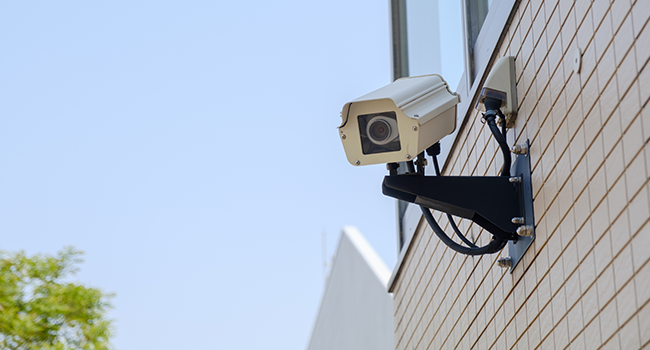
Advocacy Groups Sign Letter Supporting Bans of Facial Recognition on Campus
After gaining support from civil liberties groups, activists are planning a national campus day of action in March focused on campus use of facial recognition.
- By Haley Samsel
- February 14, 2020
Over 40 advocacy and civil liberties organizations have signed on to the movement to pressure universities to ban the use of facial recognition on college campuses.
In an open letter to school administrators released Thursday, groups including the American Civil Liberties Union, the Electronic Frontier Foundation, the Consumer Federation of America, Campaign for a Commercial Free Childhood, Color of Change and the National Immigration Law Center said they supported students who are advocating for bans. The overall effort has been coordinated by Fight for the Future, a privacy rights organization.
“This type of invasive technology poses a profound threat to academic freedom,” the letter reads. “Exposing students and educators to facial recognition profoundly limits their ability to study, research, and express freely without fear of official retaliation. Students should not have to trade their right to privacy for an education.”
So far, the campaign to ban facial recognition, which kicked off last month, has earned over 50 commitments from universities that they do not plan to use the technology. Administrators at Stanford and UCLA have also backed off of proposals to use the software or abandoned opt-in systems.
The letter’s release also comes as student activists are planning a “national campus day of action” on March 2. The organizations involved -- Fight for the Future, Students for Sensible Drug Policy and the NYCLU -- are distributing a campaign document to inform student groups of what they can plan for their day of action, including delivering petitions and open letters to administrators. Some campuses will organize tabling events or other acts of protest, according to a press release.
Facial recognition is not widely used on college campuses, as the advocacy groups acknowledge, but some K-12 schools have begun to introduce it as a new measure to keep students safe.
In a statement, Evan Greer, the deputy director of Fight for the Future, said that the campaign is specifically targeting universities because administrators are being courted by companies seeking to sell new security technology to campuses.
“While we ultimately believe that facial recognition should be banned across the board, we’re specifically calling out colleges and universities because they are being targeted by unscrupulous companies, aggressively marketing their tech to colleges and claiming that facial recognition can increase campus safety, streamline attendance, and even measure whether students are paying attention,” Greer said. “But the truth is there is no justifiable reason to use it.”
Overall, the groups hope to pressure Congress into passing a far-reaching ban on facial recognition technology use by government agencies as well as private institutions.
“This is one way to slow down the spread of this technology while lawmakers catch up," Greer told CNET.
About the Author
Haley Samsel is an Associate Content Editor for the Infrastructure Solutions Group at 1105 Media.